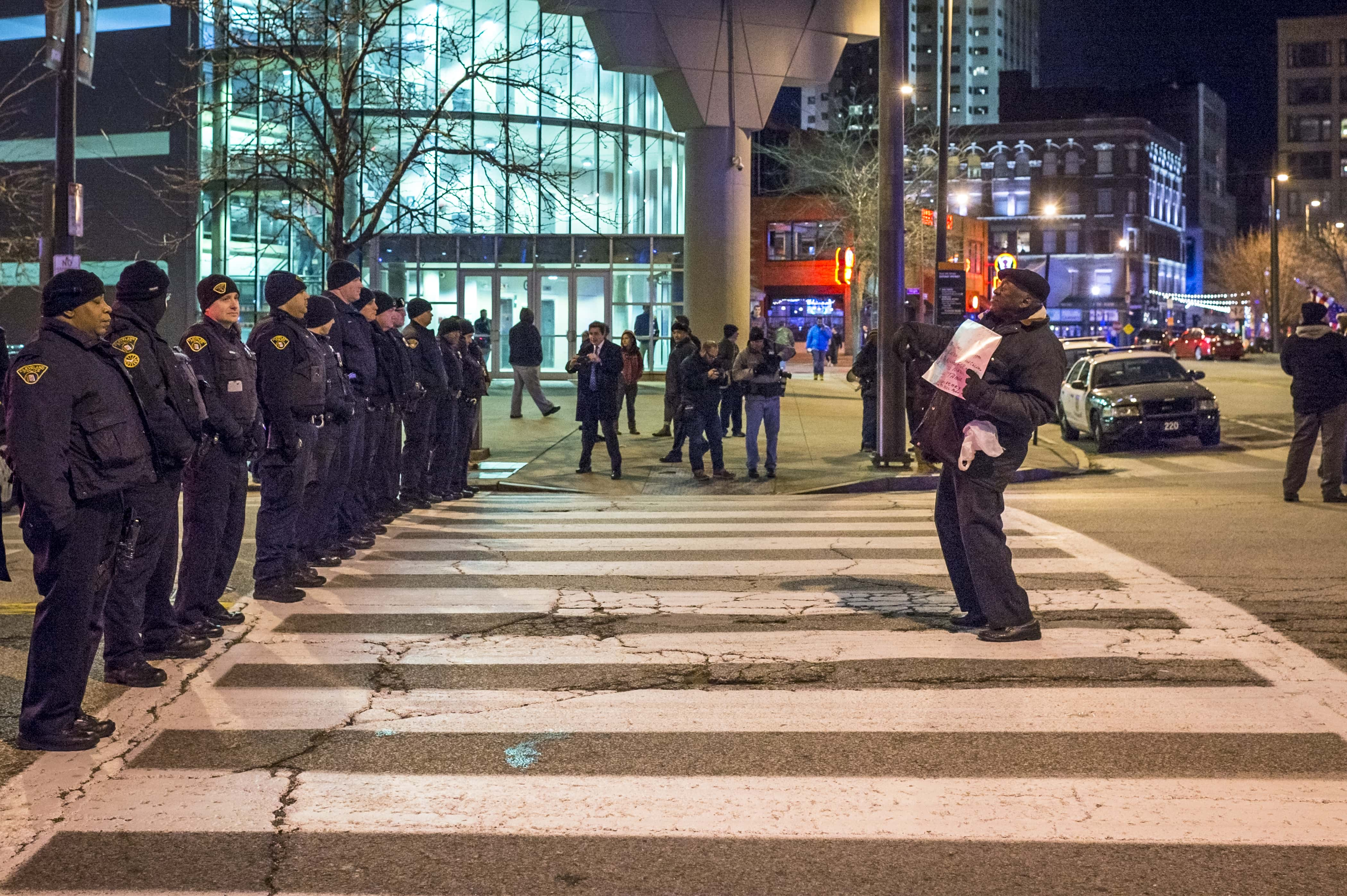Why is Fraternal Order of Police barred from reform discussions? Leaders' 'incendiary rhetoric' alienates many

A new police reform plan that aims to end police unions' solidarity with cops accused of poor conduct reportedly did not include one of the largest police unions in the country in its discussions.
The Fraternal Order of the Police, which represents 356,000 members in more than 2,100 lodges across the country, was reportedly not included in the police reform plans devised by the AFL-CIO, International Brotherhood of Teamsters and Service Employees International Union, CNN reported
RELATED ARTICLES
Speaking to the outlet, United Steel Workers staffer John Paul Smith, who served as a police officer for four years, said that local FOP leaders' "incendiary rhetoric" had made labor's job more difficult over the past year. Meanwhile, the Fraternal Order's executive director Jim Pasco said he was "fascinated by the plan" but did not "have anything to say about it."

The plan, a copy of which was obtained by CNN, reportedly calls for over 250,000 law enforcement professionals and more than 100,000 members in 'police adjacent' professionals to become "active bystanders" who would challenge police unions to "decide the merits of an officer's actions when deciding whether to defend them."
According to the outlet, it was designed to "empower local union members to speak up and take action if their fellow members are violating their oath or abusing their power, and ultimately helps the union weed out wrong-doers from union membership."
"Public safety professionals and our unions have duty to call out the wrong-doers and actions that harm people in our communities, and in doing so, the integrity of our profession," it stated. "We can no longer stand idly by, or defend transgression when those who fail to uphold their oath and duty take actions that stain the work of law enforcement."
Officials admitted that they would likely encounter backlash for the plan, which came after the death of George Floyd in Minneapolis police custody last year. However, Liza Kurtz, who oversees the Georgetown Law intervention program, told CNN that their system wasn't a way to solve every situation.
"We know there's not always an opportunity to intervene," she acknowledged. "But a lot of times those situations with tragic results (are) preceded by smaller interactions where someone could have stepped in but didn't. What we know is when smaller wrongdoing is left unchecked, it tends to not only continue but escalate."

Officials said that the success of the program would "hinge on details that have not yet been ironed out," but the committee that developed the blueprint would continue to meet and refine it further.
"We're not trying to be a tattletale squad on every little thing that happens on the job, but the point is you establish a set of standards and expectations of what it means to be a union professional, and when members see something doesn't comport, they have a process in place that can remedy that," Liz Shuler, who co-chaired the union committee, told CNN.
"Right now, 95 percent are sitting silently back while 5 percent don't do right by union values," she added. "This empowers the 95 percent and reclaims the notion of what it means to be a professional."










